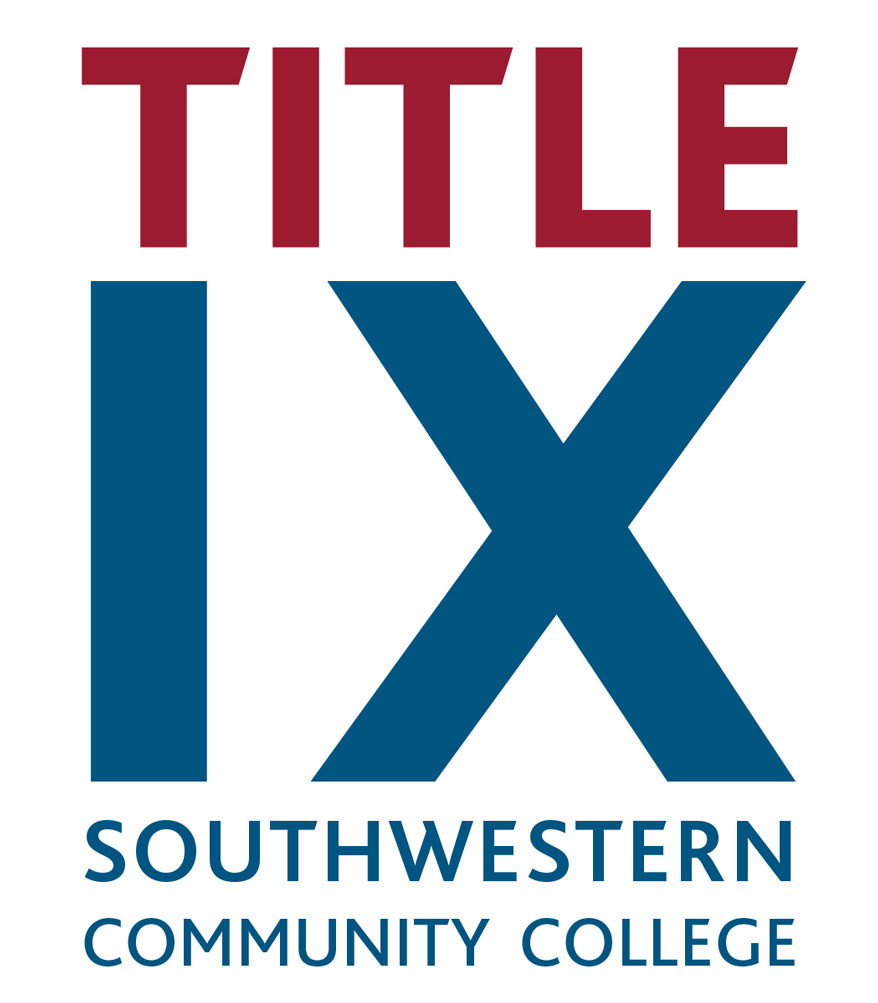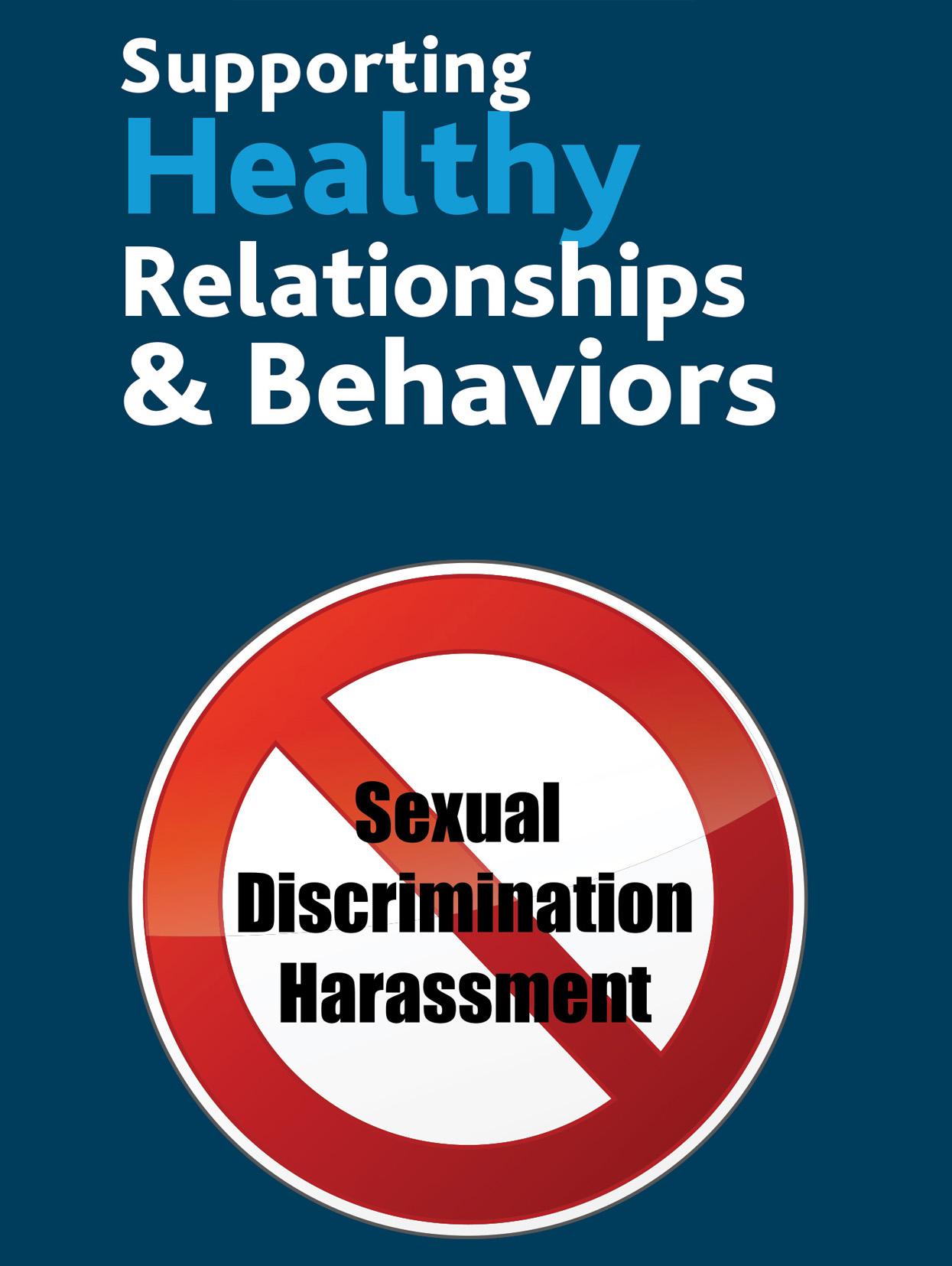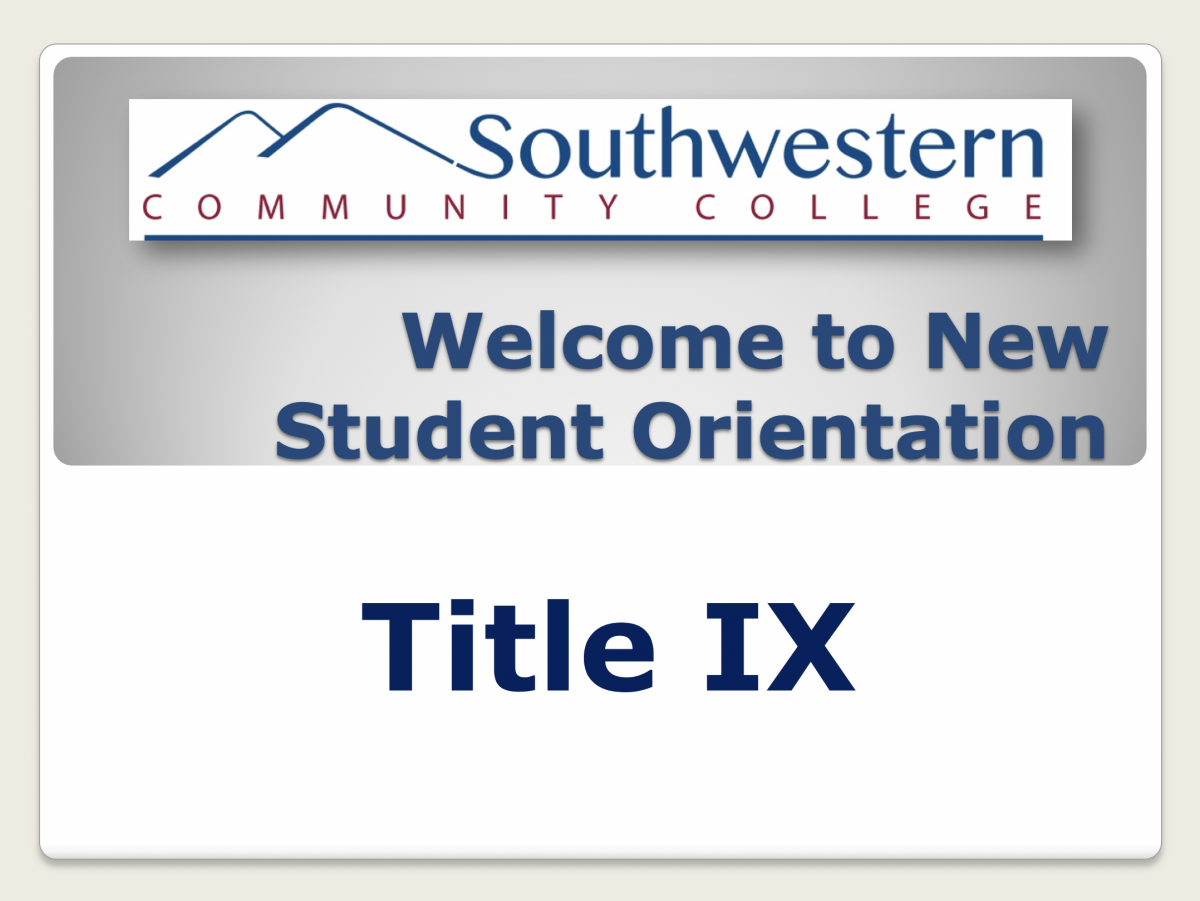
Title IX of the Education Amendments of 1972 states that: No person in the United States shall on the basis of sex be excluded from participation in, be denied the benefits of, or be subjected to discrimination under any education program or activity receiving federal financial assistance.
Sexual harassment is a form of sex discrimination that is prohibited by Title IX. It creates a hostile and inappropriate environment that is not conducive to learning and working. As a student or employee of our college community, you are fully protected under all Title IX classes and SCC prohibits all offenses as defined by Title IX.
Sexual harassment includes behavior that is sexual in nature, unwelcome, and denies or limits a student’s ability to participate in or benefit from a school’s educational program. Sexual harassment can vary depending upon the harasser. The harassment may be physical, verbal, or non-verbal. Males and females may be the victim or perpetrator of sexual harassment. Sexual harassment may occur between individuals of the same sex. Sexual harassment may occur between students, employees, or third parties on campus. Sexual harassment may occur in any program, on-campus, or off-campus during school-sponsored activities.
Southwestern Community College encourages students and employees to report sexual harassment/sexual violence to an SCC employee or to use the student concerns portal available on the MySCC link at the top of the SCC website. Once on MySCC, select Students-Report Behavior Concerns.

Click here to view our Title IX brochure.
What is Title IX?
Very quick history lesson: Title IX of the Education Amendments of 1972 is a federal civil rights law which prohibits discrimination on the basis of sex in federally funded education programs and activities. Title IX seeks to reduce or eliminate barriers to educational opportunities caused by sex discrimination in institutions that receive federal funding. Up until 2010, most Title IX issues were within the area of equity in sports (female athletes) and human resources departments. Interest peaked among student development specialists under the Obama Administration’s increased interest in Title IX AND THEN…on April 4, 2011, the Office of Civil Rights in the U.S. Department of Education issued the famous Dear Colleague Letter (DCL) guiding our obligations under Title IX. This letter required IMMEDIATE compliance under the penalty of losing federal funding. The DCL required schools to: respond promptly and effectively to sexual violence against students; publish policy against sex discrimination; designate a Title IX coordinator; adopt and publish grievance procedures; have a proactive plan to prevent sexual violence along with an on-going awareness campaign; document the plan and training activities.
March 7, 2013 – President Obama signed the Violence Against Women Reauthorization Act (VAWA) which amended section 485 (f) of the Higher Education Act of 1965, otherwise known as the Jeanne Clery Disclosure of Campus Security and Campus Crime Statistics Act. The Clery Act requires institutions of higher education to comply with certain campus safety and security related requirements as a condition of participating in the Federal student financial aid programs authorized by Title IV of HEA. Notably, VAWA amended the Clery Act to require institutions to compile statistics for incidents of domestic violence, dating violence, sexual assault, and stalking and to include policies, procedures and programs pertaining to these incidents in their annual security reports. The Clery Act appears to be turning into an omnibus campus safety bill – it was recently amended as it relates to a complainant’s right to know the outcome of her complaint as well as relevant sanctions imposed on the perpetrator.
May 6, 2020 the US DOE released the Final Rule under Title IX under the education amendments of 1972. Guiding Principles: recognition of sexual harassment as sex discrimination, recalibration of the reporter and respondent, training requirements, due process/fair grievance overhaul.
These re-authorizations require INSTITUTIONS TO PROVIDE INCOMING STUDENTS AND NEW EMPLOYEES AND DESCRIBE IN THEIR ANNUAL SECURITY REPORTS PRIMARY PREVENTION AND AWARENESS PROGRAMS. INSTITUTIONS MUST ALSO PROVIDE AND DESCRIBE IN THEIR ANNUAL SECURITY REPORTS ONGOING PREVENTION AND AWARENESS CAMPAIGNS.
Recovery Videos - These were produced by Dustin Roche as his honors project. One is a commercial; the other is an educational video about the meaning of recovery. If you or someone you know struggles with addiction and would like to know more about recovery - and how to access resources -these videos are for you.


